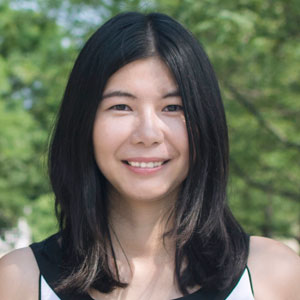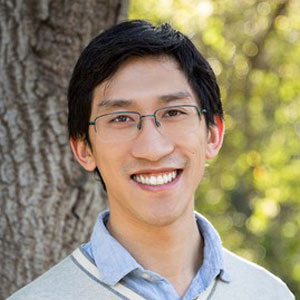Untangling Quantum Information at Columbia
Meet Henry Yuen, a computer scientist exploring the boundaries between classical and quantum computers. Yuen joined Columbia Engineering as an assistant professor in January 2021.
Meet Henry Yuen, a computer scientist exploring the boundaries between classical and quantum computers. Yuen joined Columbia Engineering as an assistant professor in January 2021.
The computer science department welcomes two new faculty members. These new CS faculty are facilitating research and learning in natural language processing and quantum theory.

Zhou Yu
Assistant Professor
PhD Computer Science, Carnegie Mellon University 2017
BS Computer Science and BA Linguistics, Chu Kochen Honors College at Zhejiang University 2011
Zhou Yu designs algorithms for real-time intelligent interactive systems that coordinate with user actions that are beyond spoken languages, including non-verbal behaviors to achieve effective and natural communications. In particular, she optimizes human-machine communication via studies of multimodal sensing and analysis, speech and natural language processing, machine learning and human-computer interaction.
Yu aims to bring together all the areas above to design, implement and deploy end-to-end real-time interactive intelligent systems that are able to plan globally considering interaction history and current user actions to achieve better user experience and task performance.
Prior to Columbia, Yu was an Assistant Professor in the Computer Science Department at University of California, Davis, where she directed the Davis NLP Lab. She is the winner of a Google GCP Credit Award and has been named an Amazon Alexa Prize Champion and a 2018 Forbes 30 Under 30 in Science.
Yu is teaching Dialog Systems this Spring and is looking for PhD, master, and undergrad students with a background in natural language processing to join her research projects.
 Henry Yuen
Henry Yuen
Assistant Professor
PhD Computer Science, Massachusetts Institute of Technology (MIT) 2016
BA Mathematics, University of Southern California 2010
Henry Yuen is a theoretical computer scientist whose goal is to understand the fundamental principles of computation in a universe governed by quantum physics (such as ours). He studies questions at the interface of quantum information theory, computational complexity theory, and cryptography.
He has made a number of contributions to the theory of quantum multiprover interactive proofs, including the discovery that such interactive proofs can verify solutions to uncomputable problems. Yuen also works on quantum cryptography; some of his contributions include designing protocols for infinite randomness expansion using untrusted quantum hardware.
Yuen was a postdoctoral associate at UC Berkeley from 2016-2018 and an assistant professor in Computer Science and Mathematics at the University of Toronto between 2018–2020. He is the recipient of a Simons-Berkeley Research Fellowship and a Google Quantum Research Award.
This semester he is teaching Introduction to Quantum Computing that is aimed at graduate students and advanced undergraduates who are looking to learn about the basics of quantum computation. For his research projects, he is currently looking for talented students to work on fundamental questions that cut across mathematics, computer science, and physics.
Find open faculty positions here.
President Bollinger announced that Columbia University along with many other academic institutions (sixteen, including all Ivy League universities) filed an amicus brief in the U.S. District Court for the Eastern District of New York challenging the Executive Order regarding immigrants from seven designated countries and refugees. Among other things, the brief asserts that “safety and security concerns can be addressed in a manner that is consistent with the values America has always stood for, including the free flow of ideas and people across borders and the welcoming of immigrants to our universities.”
This recent action provides a moment for us to collectively reflect on our community within Columbia Engineering and the importance of our commitment to maintaining an open and welcoming community for all students, faculty, researchers and administrative staff. As a School of Engineering and Applied Science, we are fortunate to attract students and faculty from diverse backgrounds, from across the country, and from around the world. It is a great benefit to be able to gather engineers and scientists of so many different perspectives and talents – all with a commitment to learning, a focus on pushing the frontiers of knowledge and discovery, and with a passion for translating our work to impact humanity.
I am proud of our community, and wish to take this opportunity to reinforce our collective commitment to maintaining an open and collegial environment. We are fortunate to have the privilege to learn from one another, and to study, work, and live together in such a dynamic and vibrant place as Columbia.
Sincerely,
Mary C. Boyce
Dean of Engineering
Morris A. and Alma Schapiro Professor